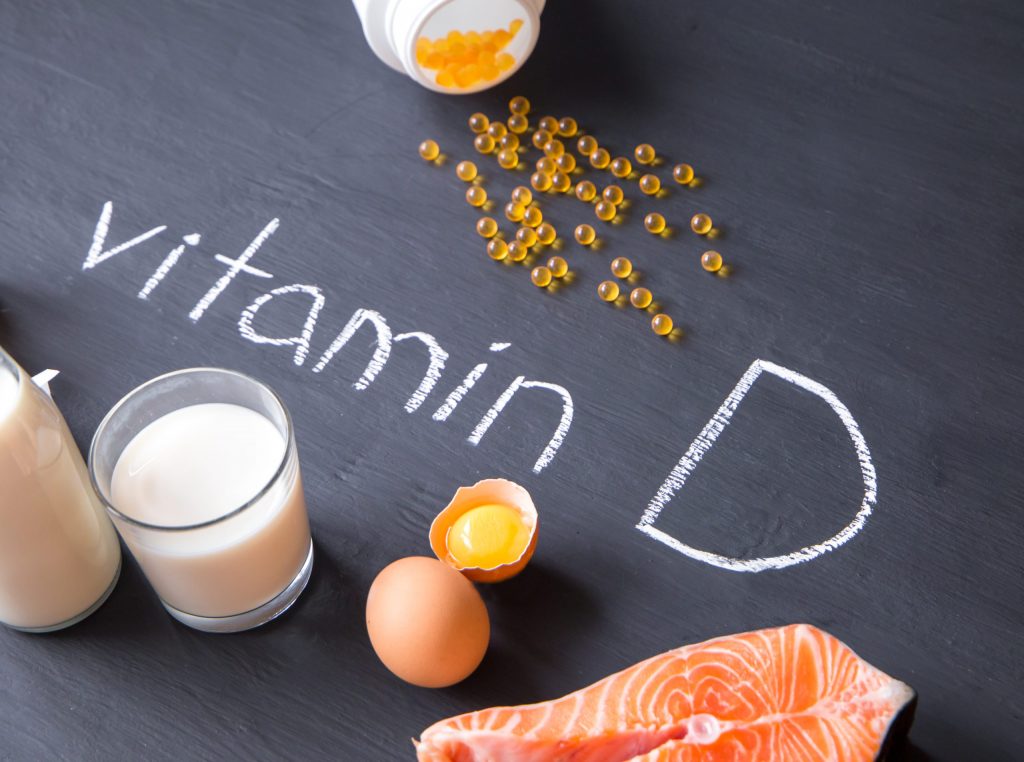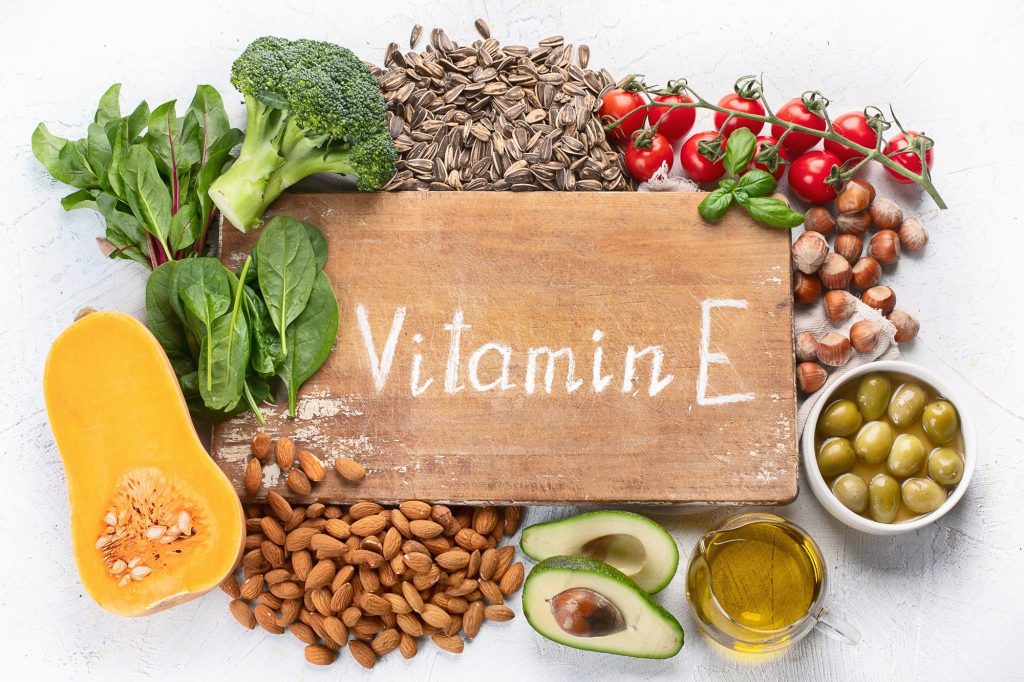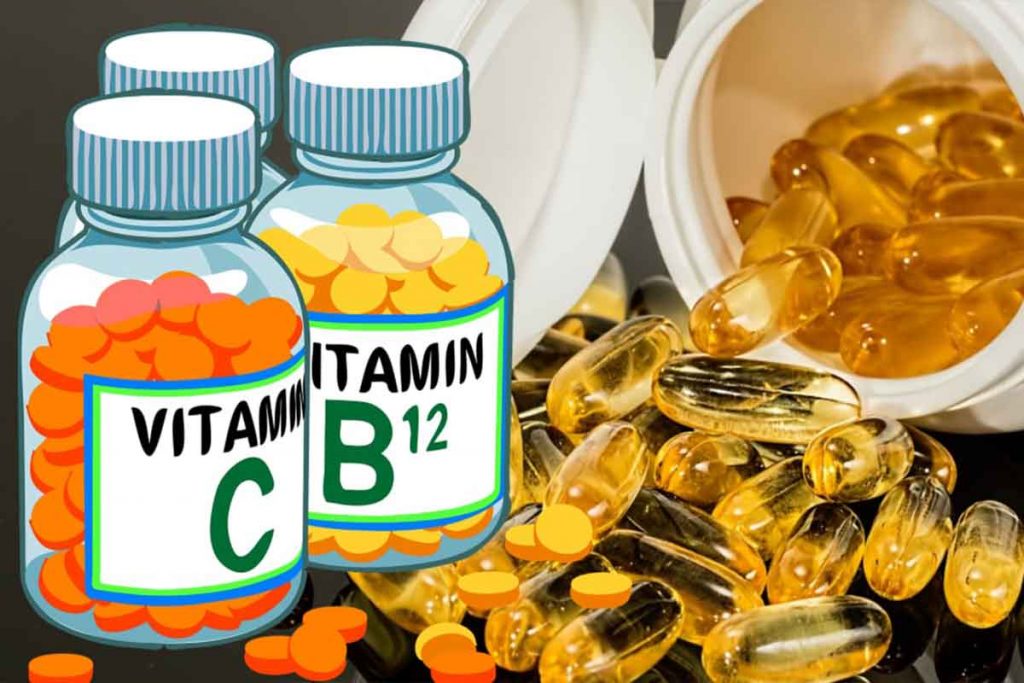Effective weight loss is a multifaceted journey that involves a combination of a balanced diet, regular physical activity, and maintaining overall health. While many people focus on calorie intake and exercise, the role of vitamins in supporting weight loss often goes overlooked. This comprehensive guide explores the essential vitamins that play a crucial role in promoting effective weight loss.
The Misconception of Vitamin “Cures” for Weight Loss:

It’s crucial to understand that no single vitamin or supplement holds the key to sustainable weight loss. While some vitamins play vital roles in metabolism and energy production, solely focusing on supplements for weight loss can be misleading and potentially harmful. This misconception often stems from misinterpretations of studies looking at the role of specific vitamins in specific contexts, not as cure-alls for weight loss.
Focusing on the Fundamentals:

Sustainable weight loss hinges on a holistic approach, addressing numerous factors:
Diet: Prioritize a balanced diet rich in fruits, vegetables, whole grains, and lean protein. These provide essential vitamins and minerals naturally, unlike isolated supplements.
Exercise: Regular physical activity is crucial for building muscle, boosting metabolism, and burning calories. Find activities you enjoy and gradually increase intensity and duration.
Lifestyle: Adequate sleep, stress management, and healthy habits contribute significantly to weight management.
Vitamin A: Supporting Cell Health

Vitamin A is essential for maintaining healthy cells, and it also supports the regulation of hormones involved in weight management. Foods high in vitamin A, such as sweet potatoes, carrots, spinach, and eggs, contribute to overall well-being and weight control.
Vitamin B Complex: Energizing the Body
B vitamins, including B1, B2, B3, B5, B6, B7, B9, and B12, are crucial for energy metabolism. They help convert food into energy, enabling the body to burn calories more efficiently. Foods rich in B vitamins include whole grains, lean meats, nuts, seeds, and leafy greens.
Vitamin C: Boosting Metabolism and Immunity

Vitamin C is known for its immune-boosting properties, but it also plays a role in weight loss. This antioxidant supports the production of carnitine, a compound that helps the body convert fat into energy. Citrus fruits, strawberries, bell peppers, and broccoli are excellent sources of vitamin C.
Vitamin D: The Sunshine Vitamin

Vitamin D is not only essential for bone health but also plays a role in weight regulation. Research suggests that individuals with low levels of vitamin D may be more prone to weight gain. Spending time in the sun, consuming fatty fish, and taking supplements can help maintain optimal vitamin D levels.
Vitamin E: Fighting Oxidative Stress

Vitamin E is an antioxidant that helps combat oxidative stress in the body. This stress can contribute to inflammation and hinder weight loss efforts. Including sources of vitamin E, such as nuts, seeds, spinach, and broccoli, can aid in the weight loss process.
Vitamin F: Essential Fatty Acids
While not commonly referred to as vitamin F, essential fatty acids like omega-3 and omega-6 are crucial for weight loss. These healthy fats support metabolism, reduce inflammation, and aid in fat burning. Fatty fish, flaxseeds, chia seeds, and walnuts are rich sources of essential fatty acids.
Vitamin K: Regulating Calcium for Bone Health
Vitamin K is vital for bone health and helps regulate calcium, which plays a role in weight management. Leafy greens, broccoli, and Brussels sprouts are excellent sources of vitamin K.
Vitamin Supplements: Filling Nutritional Gaps
While obtaining vitamins from a balanced diet is ideal, some individuals may face challenges meeting their nutritional needs. In such cases, vitamin supplements can help fill the gaps. However, it’s essential to consult with a healthcare professional before incorporating supplements into one’s routine.
Focusing on the Fundamentals:

Sustainable weight loss hinges on a holistic approach, addressing numerous factors:
Diet: Prioritize a balanced diet rich in fruits, vegetables, whole grains, and lean protein. These provide essential vitamins and minerals naturally, unlike isolated supplements.
Exercise: Regular physical activity is crucial for building muscle, boosting metabolism, and burning calories. Find activities you enjoy and gradually increase intensity and duration.
Lifestyle: Adequate sleep, stress management, and healthy habits contribute significantly to weight management.
Debunking Common Myths:

Many misleading claims surround specific vitamins and their alleged weight-loss properties. Understanding the truth behind these myths can help you avoid ineffective and potentially harmful approaches:
Myth: Green tea extract burns fat like magic.
Reality: While green tea has some health benefits, its impact on weight loss is modest and requires a comprehensive approach.
Myth: Vitamin B12 directly melts away fat.
Reality: B12 deficiency can hinder metabolism, but supplementation needs medical supervision and doesn’t guarantee weight loss on its own.
Myth: Taking chromium picolinate curbs cravings and leads to effortless weight loss.
Reality: Studies on chromium’s effectiveness for weight loss are inconclusive, and potential side effects exist.
Conclusion:
Achieving and maintaining a healthy weight involves a holistic approach, and optimal vitamin intake is a crucial component of this journey. By incorporating a variety of vitamin-rich foods into your diet, staying active, and ensuring adequate sun exposure, you can support your body’s natural weight loss processes. Remember that individual needs vary, and consulting with a healthcare professional or nutritionist can provide personalized guidance for your weight loss journey.
FAQ
Here are some frequently asked questions (FAQs) related to vitamins and weight loss:
Can vitamins alone help with weight loss?
Vitamins play a supportive role in weight loss by aiding metabolism, energy production, and overall health. While they are beneficial, a balanced diet, regular exercise, and a healthy lifestyle are crucial for effective weight loss.
How can vitamin D contribute to weight loss?
Vitamin D deficiency has been linked to weight gain. Adequate levels of vitamin D may help the body regulate insulin and manage weight. Sources include sunlight exposure, fatty fish, and vitamin D supplements.
Which B vitamins are essential for weight loss?
B vitamins, including B1, B2, B3, B5, B6, B7, B9, and B12, are crucial for energy metabolism. They help convert food into energy, supporting the body’s ability to burn calories efficiently.
Can vitamin C help with fat burning?
Yes, vitamin C aids in the production of carnitine, a compound that helps the body convert fat into energy. Foods rich in vitamin C, such as citrus fruits and bell peppers, can contribute to weight loss efforts.
Is vitamin A important for weight management?
Yes, vitamin A supports healthy cells and helps regulate hormones involved in weight management. Foods like sweet potatoes, carrots, and leafy greens are good sources of vitamin A.
How does vitamin E contribute to weight loss?
Vitamin E is an antioxidant that fights oxidative stress in the body, which can hinder weight loss. Nuts, seeds, and leafy greens are excellent sources of vitamin E.
What is the role of vitamin K in weight management?
Vitamin K is vital for bone health and helps regulate calcium, which plays a role in weight management. Leafy greens, broccoli, and Brussels sprouts are good sources of vitamin K.
Are omega-3 and omega-6 considered vitamins?
While not traditional vitamins, omega-3 and omega-6 are essential fatty acids crucial for weight loss. They support metabolism, reduce inflammation, and aid in fat burning. Fatty fish, flaxseeds, and walnuts are rich sources.
Can vitamin supplements replace a balanced diet?
While supplements can fill nutritional gaps, they should not replace a balanced diet. It’s best to obtain vitamins from whole foods whenever possible. Consult a healthcare professional before taking supplements.
How can I determine my vitamin needs for weight loss?
Individual vitamin needs vary. Consulting with a healthcare professional or a nutritionist can help assess your specific requirements based on factors like age, gender, health status, and dietary preferences.

